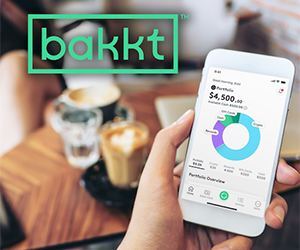
Key Takeaways
- The SEC is claiming that Ripple made lobbying efforts surrounding the public perception of XRP.
- Such lobbying efforts have been used to form a legal narrative of XRP that fits Ripple’s own interests, the SEC claims.
- According to the SEC, evidence of XRP perception lobbying will be be used to counter Ripple’s fair notice defense.
A new development in Ripple’s ongoing lawsuit surfaces.
New Turn in Case Against Ripple
As part of its ongoing lawsuit against Ripple, the Securities and Exchange Commission (SEC) is alleging that the firm sought to influence public perception of XRP.
In a new letter submitted to Judge Sarah Netburn, the SEC’s attorney Jorge Tenreiro has stated the agency is seeking new evidence on Ripple’s “lobbying efforts” regarding XRP. The SEC alleges that Ripple tried to influence the public’s thoughts on whether XRP was a security or not.
The crux of the case against Ripple rests on whether its XRP token is a security. The SEC filed a lawsuit against Ripple in December, claiming that the company raised $1.3 billion from selling unregistered securities.
The regulator has asked Ripple to submit new documents that it claims would prove that the firm made efforts to alter public perception over XRP’s regulatory status.
In the letter, the SEC’s attorney noted that the investigation shows that Ripple engaged in lobbying efforts surrounding XRP. It reads:
“Ripple relies on statements that it paid that official to make, to support its litigation position.”
According to the document, Ripple put former CFTC Chairman Chris Giancarlo on its payroll, who after joining the company made a statement that XRP was not a security in Jun. 2020. Once he made the statement, the price of XRP also rapidly appreciated.
The document also notes that further evidence of lobbying will be used to counter Ripple’s affirmative defense, which argues that the firm should have been received “fair notice” from the SEC before legal action was taken. In other words, the SEC argues that if the company engaged in funding efforts the alter public perception of XRP, it shows it was already aware of the questionable legality of its XRP sales.
Such lobbying efforts have been used to collect statements from public figures and leveraged by the company’s public relations team to form a legal narrative around XRP that fits its own interests, the SEC alleges.
Prior to the lawsuit, Ripple’s CEO Brad Garlinghouse, also the defendant in the case, claimed that SEC created confusion among market participants in regard to the legality of XRP. In response, the SEC now alleges that it was the firm that caused the confusion, and is using it to support its fair notice defense. The agency wrote:
“Since Ripple has put at issue its purported lack of “fair notice” based on the beliefs of market participants, the SEC is entitled to test whether the supposed confusion was bought and paid for by Ripple as opposed to a reflection of genuine market sentiment.”
Within the same document, the SEC has filed a new request for an additional discovery process. Under this separate request, the agency wants to conduct six additional depositions of individuals related to the company who have special knowledge in relation to XRP sales. These individuals five former Ripple employees and Christian Gil, the co-founder of trading firm GSR, who has carried out market-making on behalf of the Ripple’s executives.














